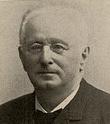Selenium [Sel]
Great nervous debility and exhaustion from severe acute diseases, particularly when the sensations of the patient spread from above downward; inability to perform any kind of mental or physical labor; sexual desire, though from sexual excesses he suffers with debility and relaxation of the parts; loss of prostatic juice,; (<) in hot weather, which exhausts him mentally and bodily; sleepy from exhaustion, (>) after sleep; paretic weakness of spine from seminal losses.
Senna [Senn]
Simple exhaustion, sweat, backache and weakness from excessive nitrogenous waste with excessive deposits of urates in the urine (Kali carb).
Staphisagria [Staph]
Patient worries about his ailments brought about by sexual excesses or by persistently dwelling on sexual objects, has asthma during or after an embrace; want of memory.
Veratrum-alb [Verat]
Cardiac and general muscular debility; intermitting heart, debility with blue hands and cold feet; constipation from paralytic state of rectum; sudden sinking of strength from debilitating (choleraic) losses, with anguish and cold sweat on forehead when he rises.
Zincum [Zinc]
Brain exhaustion and brain-fag; lameness and deadness of hands, which look bluish; coldness of feet at night; numbness of feet from suppressed foot-sweat, by getting wet, (<) from wine; feels best during flow of menses.


